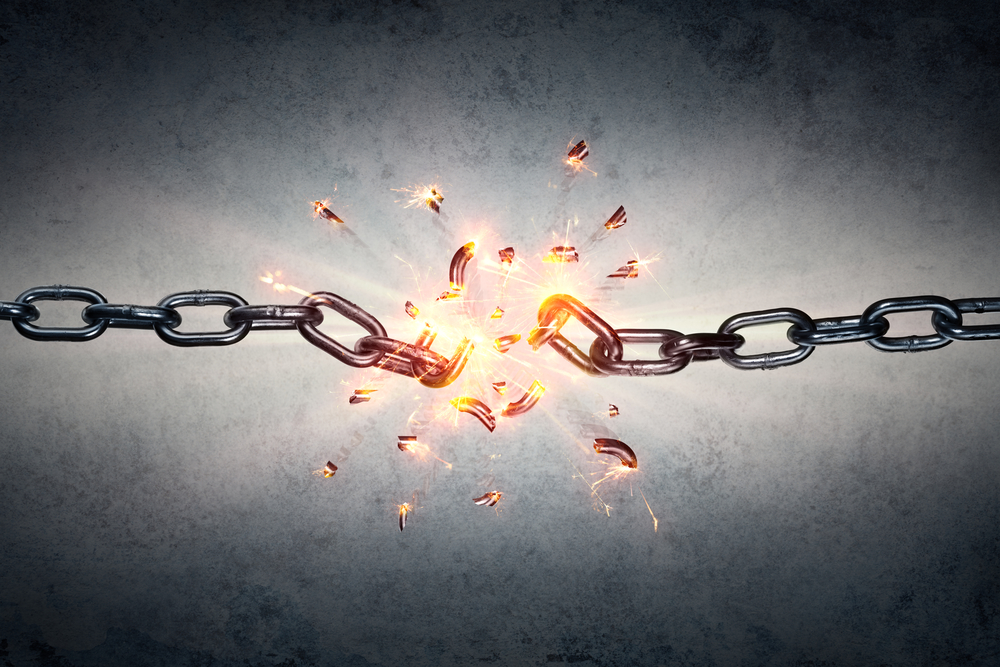Outpatient Drug Rehab Near Me
According to SAMHSA, outpatient drug rehab facilities are places where you can attend therapy sessions to get clean and sober.
Outpatient drug rehab facilities offer alcohol and drug addiction therapies, where you participate as an “out” patient. For people who have responsibilities like work or family, outpatient is great since it only takes up a portion of the day.
Why do many people prefer Outpatient Drug Rehab Treatments?
Why do people prefer going to outpatient drug rehabs vs. inpatient drug rehabs? Well, for one thing, outpatient drug rehabs don’t keep you tied down to a specifically required routine where you must live on site. Inpatient treatment can last for up to for three months or longer and is more restrictive. Accordingly, outpatients don’t have to spend all day and night at the outpatient drug rehabs. However, it’s mandatory to attend therapy sessions about ten to twelve hours a week.
Do I have to “Detox” before going to an Outpatient Drug Rehab?
Typically you will start attending therapy at an outpatient drug rehab after spending around a week in an inpatient “detox” facility. However, there are some intense “outpatient” detox therapies given to addicts with milder withdrawal symptoms. An outpatient drug rehab center is typically one of the first stops (after a short stay in inpatient drug rehab aka “detox” facility), on a person’s trip to get clean from drugs.
Are there any Drawbacks to Outpatient Drug Rehab Treatments?
Outpatient drug rehab therapy has many wonderful features, but it also has its drawbacks. One of the best aspects of outpatient drug rehabs is the greater amount of freedom. However, there is a significant amount of time that must be devoted each week until your Outpatient program is complete.

What’s a typical Therapy Schedule for Outpatient Drug Rehab?
There are no set schedules for all people who attend outpatient drug rehabs, but there are specific program requirements. Even the most organized person may find outpatient drug rehab’s therapy plans challenging to stick to. If you choose outpatient drug rehab, you should prepare to follow a somewhat strict schedule.
For example, you might have to spend eight hours at work. Then you might need to drive or take a bus to the outpatient rehab center. Then you have the actual therapy for about an hour and a half. At this point, you’ve already spent ten hours of your day—and maybe you feel sick with withdrawal symptoms.
In some cases, you can’t call in sick to work without consequences. It is even worse if you have to follow a court order: and strictly follow an outpatient drug rehab’s therapy plan. Perhaps you must be at the outpatient drug rehab at a particular time. You could go to jail for “violating” your court order if you don’t show up for that therapy session. So, if you have a long or unpredictable work schedule, it would be ideal to find outpatient drug rehabs that have flexible hours. Sometimes people find the freedom of outpatient drug rehab unless they’re tied down to a schedule with no ‘wiggle room.’
When should you choose Outpatient Drug Rehab Treatments?
In most cases, people choose outpatient drug rehab to continue with their usual routines. Many times, outpatient drug rehabilitation programs are best if you don’t have the luxury of time or money to stay all day, every day at an inpatient residential facility. Since you are continuing to participate in every-day activities, you can stay in touch with your friends and family.
Time management is important for those who choose outpatient drug rehab therapy. Being consistent and on time to therapy sessions is vital for success. Also, patients need to have the discipline in order to stick to the outpatient drug rehab’s schedule. Since there is more freedom, it’s important to avoid old habits and toxic people.
Outpatient drug rehab may be ideal if your withdrawal symptoms aren’t extreme. While attending outpatient drug rehab, you can continue living at home and be working while you get clean from alcohol or drugs.

Are there any Reasons for not going to an Outpatient Drug Rehab?
It may be necessary to go into an inpatient program you had tried to get sober many times before without success. Remember, if you are using dangerous drugs like opiates, Xanax, meth, cocaine or even alcohol, you’ll need specialized care.
Are Inpatient therapies better choices vs. Outpatient Drug Rehabs?
Sometimes, if people have a dual diagnosis: where they have co-occurring disorders such as mental and substance use disorders, it’s best to choose inpatient over outpatient drug rehabs. So, one alternative therapy at an outpatient drug rehab would be to spend a few months (24/7) at an inpatient rehab facility. At an inpatient drug rehab, the addicts typically have to ask permission for everything! Outpatients in addiction treatment programs will are eventually like adults, especially if they show responsible behavior. In comparison, inpatient treatment is more restrictive, since higher risk clients might hurt themselves if they get too much freedom.
Inpatient drug rehab therapies are usually preferable to outpatient treatments if you have intense withdrawal symptoms or are stuck dangerous drugs such as opioids, heroin, fentanyl, etc. That in consideration, outpatient drug rehab therapies provide the same intense therapies, as inpatient drug rehabs will provide. You may prefer to be an outpatient unless there is a court order or your intervention plan to attend an inpatient drug rehab.

Remember..
One caveat: you should choose inpatient drug rehab therapy if you are dependent on a dangerous drug—if you have friends and family who trigger you to take more drugs—or you simply need time away from your usual activities. Outpatient drug rehabs’ programs are known to provide many people with the proper therapy, which helps people get clean and sober
Are there alternative Outpatient Drug Rehab therapies?
Yes, you might think about trying short-term therapies that are known as intensive outpatient programs. At first, you will go to regular treatment sessions that are physically and emotionally powerful. Often, these “intense” treatments will require daily attention.
What kinds of therapy could I receive at Outpatient Drug Rehabs?
There will be a few types of therapies that you could receive while attending an inpatient drug rehab program. Two types of therapies are “Motivational Enhancement” and “Resistance Reduction.” Motivational enhancement therapy includes motivational interviewing. Resistance reduction is a unique therapy since this therapy does not stop just because people don’t “feel” like altering their substance abuse patterns. Resistance reduction therapy explores the cause and effect of a person’s actions but does not require a person to want to change, to get better.
Also is the standard “Cognitive Behavior Therapy (“CBT”), which includes “dialectical behavior therapy. Both CBT therapies are meant to reinforce one’s rational thinking, getting rid of the belief that one can’t operate without their drug of choice. Finally, the inpatient drug rehab may explore “Psychodynamic Therapies,” where patients delve into their subconscious minds to figure out the causes of their undesirable behaviors. This psychotherapy centers on Freud’s findings, based on the hidden beliefs that keep a person wanting to use drugs or alcohol.
Finally, the inpatient drug rehab may explore “Psychodynamic Therapies,” where the inpatients delve into their subconscious minds to figure out the causes of their undesirable, behavioral health disorders. This psychotherapy seeks to find and eliminate the hidden beliefs that keep a person wanting to use drugs or alcohol. Finally, 12-step counseling may take place—or other group therapy treatments, where like-minded people get together and share their struggles and triumphs while getting clean and sober.

Outpatient Or Inpatient Drug Rehabs?
Concentrating long enough to formulate a plan can be mindboggling. If you’re already worn out from excessive drug use, it’s understandable if you’re struggling to decide what to do. So, it may be difficult to decipher whether you should go to “inpatient or outpatient” drug rehabs.
There are so many choices, which can be overwhelming when you’re in a hurry to get well! Sometimes, you don’t get to choose when it’s mandatory to attend inpatient drug rehab. Don’t let that happen to you. Please don’t get thrown in jail or make your friends and family stage your intervention! People who detox in jail have said, “It is the most miserable experience—EVER!”. So, please take your life into your own hands, before others make your decisions for you. Don’t wait until the court-orders an inpatient drug rehab, where you have to attend whether you like it or not! That said, there are times when your inpatient drug rehab treatments should be mandatory.

What are the best types of Outpatient Drug Rehabs?
It may be challenging to figure out which outpatient drug rehab is best. Don’t worry; you’re not alone! Most people do not understand the difference between the types of treatments and programs. For example, outpatient compared to inpatient drug rehab. Also, the difference between sober living facilities and halfway houses.
If you only had a vague understanding of these programs, then what are your chances of knowing if inpatient drug rehab is the right treatment program for you?
If you don’t have time for research or want to learn more from a professional, then call this hotline. We have caring professionals who are waiting to talk to you about any questions or concerns you may have about finding the right inpatient or outpatient treatment near you. Whether you need help or know a family member or friend might be in need of some type of support during the beginning of their recovery, give us a call today.
